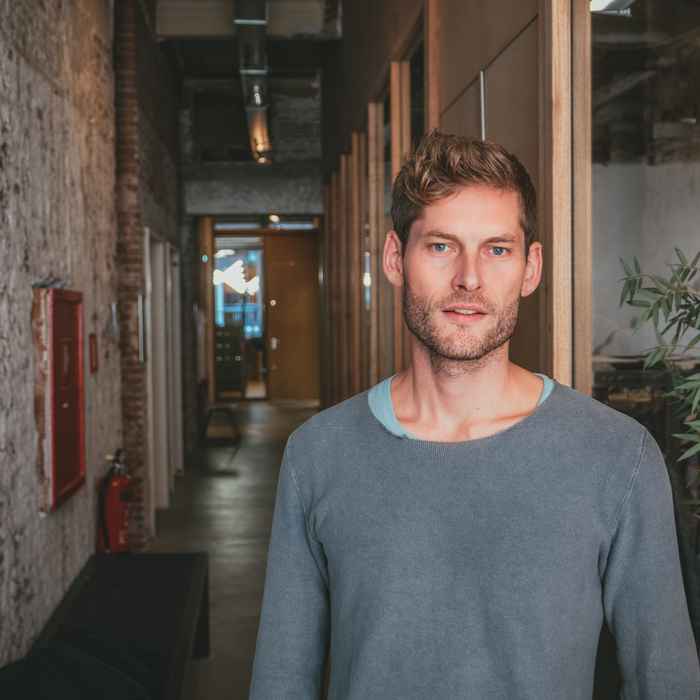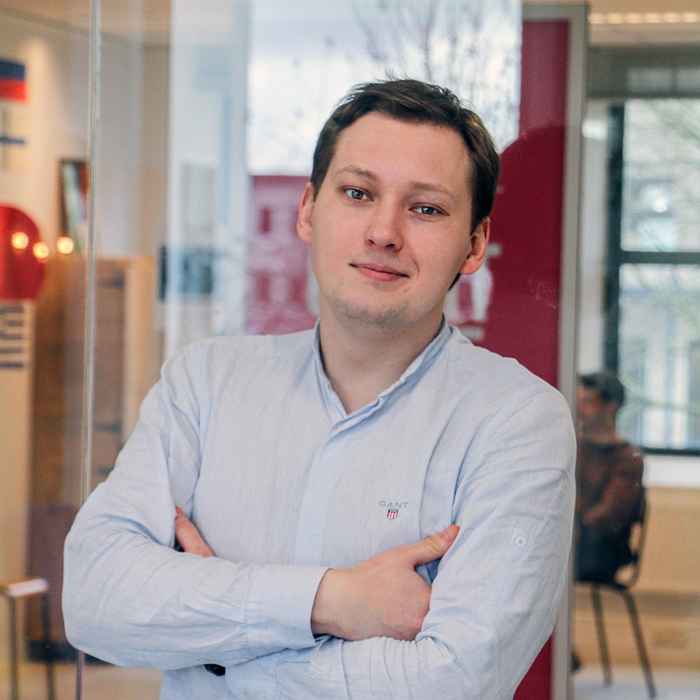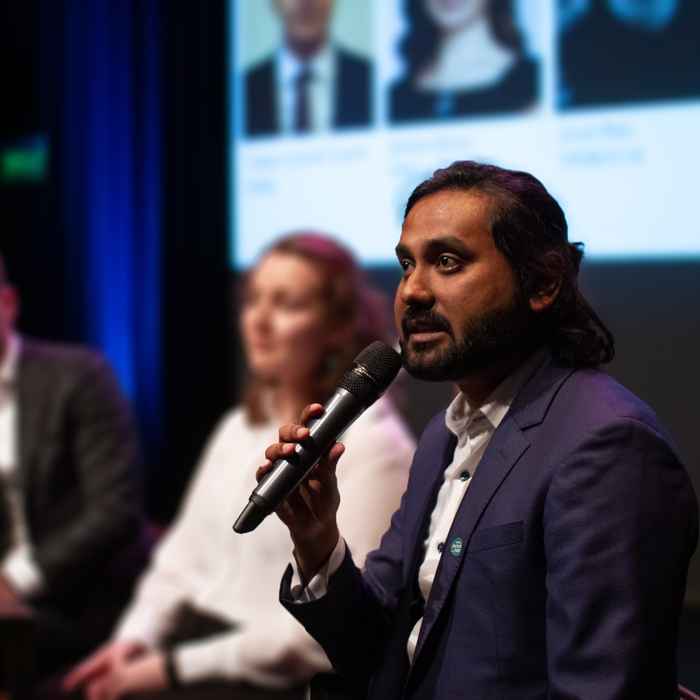How our alumni deal with the corona crisis

Mark Walschot – Partner at Nescio
Obviously, normal business is slow now – that’s no surprise – and we've all been working from home since March. No surprise there, either. But, we feel incredibly lucky to have a product that’s used online, and communication in times of crisis is a core need for many companies. This makes us focus on how we can help others at the moment. We do many pro bono cases to support organisations, initiatives and ideas that help people out in this crisis. They use our PR tool or the advice from the PR professionals in our network, for free. The positive energy that this brings, gives a lot of meaning to our work and our company. Even though business-wise it’s tough, this is really gratifying.
We believe the crisis calls for optimism and the need to put things in perspective. In the end, we’re just a PR tool. On the scale of life, it’s not really important. To keep as many people as possible healthy, that is important. Therefore, next to trying to help out as much as we can, our company tries to make the remote work situation fun. We organise a weekly online quiz in which people can win support-your-locals prizes (steundekeukens.nl, for example), as well as the 'Het is een bizarre tijd, #zekernu' quiz-cup, which is passed on from weekly winner to weekly winner, with a personal social-distance hand-over to make sure the team stays in touch. Also, we have a daily virtual talk at the coffee-machine and we try to keep everyone up to date with relevant content regarding the crisis. These are a few examples. Above all, we try to maintain a positive mindset, focus on the health of our team and of our clients and make the most of 'these crazy times'.

Evgeny Mironov – Head of Data & Research at bunq
Background: I'm a Head of Data & Research at bunq, an Amsterdam-based digital challenger bank, leading 3 teams of ~15 employees in total, with 90% of bunqers now working remotely.
The corona virus actually didn't have as much of an impact as you'd expect it to! Even on an ordinary day before the crisis, our internal processes and systems were all geared towards communicating and collaborating digitally, using digital platforms the world is just discovering right now. In fact, we see a spike in demand for our services (probably due to them being 100% digital and mobile), launched a new product two weeks ago and did not cease hiring for a second, taking on at least 10 new people last month!
Our HR department started a few company-wide initiatives to make people feel less lonely while confined inside most days. We do Zoom workout sessions after work, have a Stay-at-home pub quiz every Friday, and have fun initiatives to cheer people up almost daily. As manager of a team full of young people from all over the world, I also try extra hard to make sure no one feels left out or experiences isolation-related issues. It's a challenging task, though, but we're all in this together.

Alena Kerosinskaya – Digital Marketing Analytics Executive at Informa
I work for a British multinational company in Amsterdam. My division specialises in organising the biggest business exhibitions worldwide. All mass events being cancelled certainly effects the business and the company took different measures to ensure employees’ sustainability during these challenging times.
When my company introduced remote working, I took an opportunity to visit my parents in Moscow for a long period. My working day now is full of video conferences. It helps to stay connected, but at the same time it drains a lot of energy. A recent BBC article describes how during video meetings our minds are together while our bodies are not, which results in extra work to process non-verbal communication that, therefore, consumes more energy. Luckily, my company takes care of our bodies as well. My team has weekly online yoga, BBB and HIIT sessions with fitness instructors.

Sabyasachi Sengupta – Business Developer at ABN AMRO
Covid-19 has changed everyone's life. My day to day life has been impacted very much. For the last 8 weeks, I have been working from home and I miss my daily interactions with my colleagues. The banking sector is still not as affected as tourism or aviation, but there is some degree of impact across every sector. The initial period from mid-March was tough, as it was a new way of working plus the panic was extreme. At some point, it even felt unsafe to step outside my house.
It is tough to cope with so many challenges at the same time and also with the fear of getting infected. The one thing that helps in this period is to stay active. So, I meditate, go for runs, and exercise at home to keep my mental health intact. I make it a point to call my colleagues more often than before so that we can communicate more easily. More importantly, I try to spread positivity whenever I speak to someone instead of being depressed about this lockdown. I noticed that the more positivity I spread, the more positive I get from within.
Read Sabyasachi’s original interview

Maryama W. Marong - Founder and Consultant at Bend & Stretch
Working remotely is the new status quo, which has its advantages and disadvantages. On the one hand, the world has become smaller, in the sense that you can easily ‘meet’ someone on a different continent. On the other hand, you feel the limitations and miss being with colleagues and clients.
Of course, business has slowed down a bit, as my work partly consists of team workshops. But, a lot has moved to the online space. I’m Zooming and Slacking on a daily basis. This period has also forced me to innovate and create new offerings. As I want to contribute to a better future, I have created an online course called ‘Innoveren met Impact’, to help professionals and (new) entrepreneurs prepare and strategise for the future. I believe that everything will be different from now on – the 'how?' is on us.
One of the limitations of these times that I experience is self-motivation. I actually get a lot of motivation and energy from the people I work with. Not being able to interact with them face-to-face is a real bummer. Luckily, many companies are willing to invest in employee engagement and happiness. As an adviser for the SaaS company Tradler, I see that many corporates take this seriously. While it has always been important, the actual benefits for the business as a whole are becoming clearer.
We thank Mark, Evgeny, Alena, Sabyasachi and Maryama for contributing to this article, and commend them on their efforts for others and on how they keep themselves healthy. We wish them the best for the coming time.